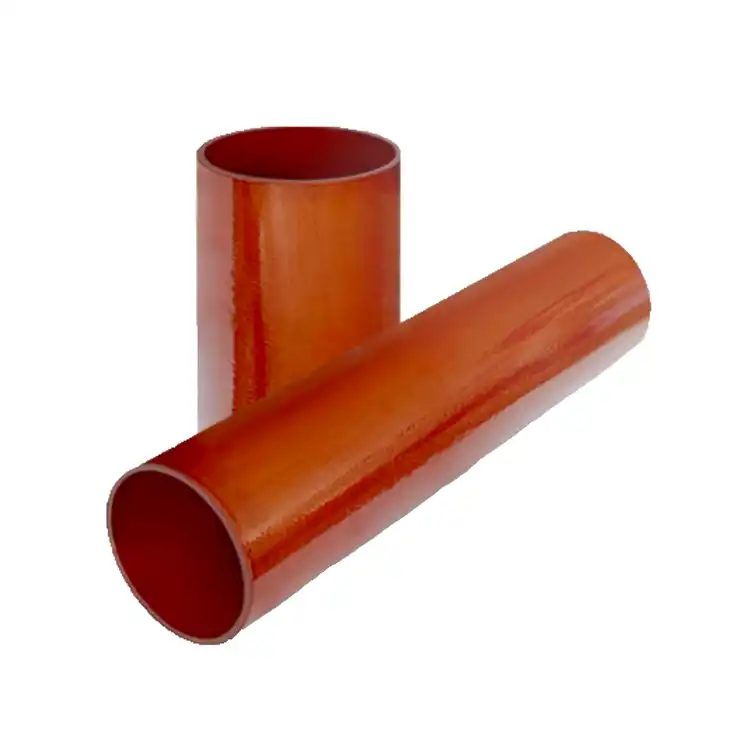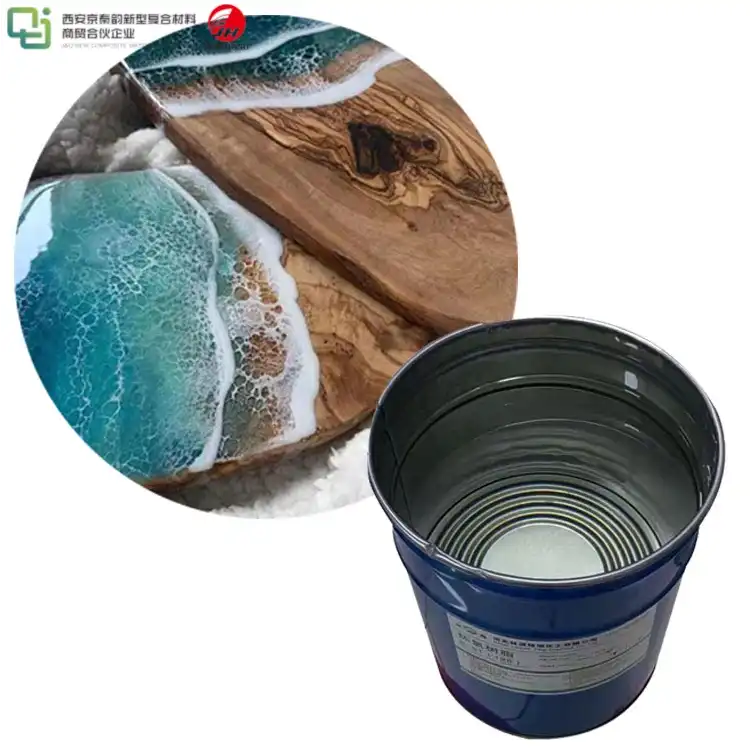What industries typically use phenolic cotton laminated sheets?
2024-12-20 17:20:36
Phenolic cotton laminated sheets, including the popular phenolic cotton cloth laminate sheet 3026, find widespread application across numerous industries due to their exceptional properties. These versatile materials are commonly utilized in electrical and electronics manufacturing, automotive production, aerospace engineering, construction, and industrial machinery. Their high strength-to-weight ratio, excellent electrical insulation properties, and resistance to heat and chemicals make them indispensable in various applications. From circuit boards and switchgear components to automotive parts and aircraft interiors, phenolic cotton laminated sheets play a crucial role in enhancing product performance and reliability. Their adaptability and durability have also led to their adoption in the renewable energy sector, particularly in wind turbine components and solar panel substrates.
Electrical and Electronics Industry: Powering Innovation with Phenolic Cotton Laminated Sheets
Circuit Board Manufacturing: The Foundation of Modern Electronics
In the realm of electronics, phenolic cotton laminated sheets serve as the unsung heroes of circuit board manufacturing. These sheets, particularly the phenolic cotton cloth laminate sheet 3026, provide an ideal substrate for creating printed circuit boards (PCBs). Their excellent electrical insulation properties ensure that electrical signals flow precisely where they're intended, preventing short circuits and enhancing overall device performance. The dimensional stability of these laminates also contributes to the accuracy of circuit layouts, which is crucial in today's miniaturized electronic devices.
Switchgear and Electrical Panel Components: Ensuring Safety and Reliability
The electrical industry relies heavily on phenolic cotton laminated sheets for manufacturing switchgear and electrical panel components. These materials exhibit superior arc resistance and flame retardancy, making them ideal for applications where electrical safety is paramount. In high-voltage environments, the exceptional dielectric strength of phenolic cotton laminates helps prevent electrical breakdown, ensuring the longevity and reliability of switchgear systems. Their ability to maintain their properties under varying temperature and humidity conditions further enhances their suitability for diverse electrical applications.
Transformer and Motor Insulation: Enhancing Efficiency and Durability
Phenolic cotton laminated sheets play a vital role in transformer and motor insulation. Their high thermal resistance allows them to withstand the heat generated in these devices without degrading or losing their insulative properties. This characteristic is particularly valuable in high-performance motors and transformers where efficiency and durability are critical. The sheets' ability to resist oil and other chemicals commonly found in transformers also contributes to the extended lifespan of these essential electrical components.
Automotive and Aerospace Industries: Elevating Performance with Advanced Materials
Lightweight Structural Components: Driving Efficiency and Performance
In the automotive and aerospace sectors, the quest for lightweight yet strong materials is unending. Phenolic cotton laminated sheets, including the phenolic cotton cloth laminate sheet 3026, offer an excellent solution. These materials provide high strength-to-weight ratios, making them ideal for various structural components in vehicles and aircraft. From interior panels to under-hood applications in automobiles, and from flooring to bulkhead structures in aircraft, these laminates contribute to overall weight reduction without compromising on strength or safety. This weight reduction translates directly into improved fuel efficiency and performance, aligning with the industries' sustainability goals.
Thermal and Acoustic Insulation: Enhancing Comfort and Efficiency
The thermal insulation properties of phenolic cotton laminated sheets make them invaluable in both automotive and aerospace applications. In vehicles, these materials help manage heat in engine compartments and exhaust systems, contributing to overall thermal efficiency. In aircraft, they play a crucial role in maintaining cabin comfort by providing effective insulation against the extreme temperatures encountered at high altitudes. Additionally, the acoustic damping properties of these laminates help reduce noise levels in both vehicles and aircraft, enhancing passenger comfort and adhering to stringent noise regulations in the aerospace industry.
Fire-Resistant Applications: Prioritizing Safety in Transportation
Safety is paramount in both automotive and aerospace industries, and phenolic cotton laminated sheets contribute significantly to this aspect. Their inherent flame-retardant properties make them ideal for applications where fire resistance is critical. In aircraft interiors, these materials are used extensively in panels, partitions, and storage compartments, meeting the stringent fire safety standards set by aviation authorities. Similarly, in automotive applications, these laminates find use in areas where fire resistance is essential, such as in battery enclosures for electric vehicles or in components near high-temperature zones in conventional vehicles.

Industrial and Construction Sectors: Building Resilience with Phenolic Cotton Laminates
Machinery Components: Enhancing Durability and Performance
In the industrial sector, phenolic cotton laminated sheets, including specialized variants like the phenolic cotton cloth laminate sheet 3026, are widely used in machinery components. Their high mechanical strength, coupled with excellent wear resistance, makes them suitable for applications such as gears, bearings, and sliding components in various types of machinery. The material's ability to maintain its properties under high loads and in the presence of lubricants contributes to extended equipment life and reduced maintenance requirements. Moreover, their dimensional stability ensures that precision-machined parts retain their shape and size, even under varying environmental conditions, which is crucial for maintaining equipment accuracy and efficiency.
Chemical Processing Equipment: Resisting Corrosion and Degradation
The chemical resistance of phenolic cotton laminated sheets makes them invaluable in the chemical processing industry. These materials are used in the construction of tanks, pipes, and reaction vessels that come into contact with corrosive chemicals. Their ability to withstand a wide range of acids, bases, and solvents without degradation ensures the longevity and safety of chemical processing equipment. This resistance not only protects the structural integrity of the equipment but also prevents contamination of the processed chemicals, which is critical in industries such as pharmaceuticals and food processing where purity is paramount.
Construction and Infrastructure: Building for Durability and Efficiency
In the construction industry, phenolic cotton laminated sheets find applications in both structural and decorative elements. Their high strength-to-weight ratio makes them suitable for use in composite panels for building facades, offering both aesthetic appeal and functional benefits such as thermal insulation. In infrastructure projects, these materials are used in the fabrication of formwork for concrete pouring, taking advantage of their moisture resistance and dimensional stability. The durability of phenolic cotton laminates also makes them ideal for high-traffic areas in buildings, such as flooring in industrial facilities or wall panels in public spaces, where resistance to wear and tear is essential.
Conclusion
Phenolic cotton laminated sheets, including specialized products like the phenolic cotton cloth laminate sheet 3026, have become indispensable materials across a wide range of industries. Their unique combination of properties - including high strength, excellent electrical insulation, thermal resistance, and chemical stability - makes them versatile solutions for diverse applications. From powering our electronic devices to ensuring safety in transportation, and from enhancing industrial efficiency to building durable infrastructure, these materials continue to play a crucial role in technological advancement and industrial progress. As industries evolve and new challenges emerge, the adaptability and reliability of phenolic cotton laminated sheets ensure their continued relevance in shaping the future of manufacturing and engineering.
Contact Us
For more information about our range of phenolic cotton laminated sheets and how they can benefit your specific application, please don't hesitate to contact us. Our team of experts is ready to assist you in finding the perfect solution for your needs. Reach out to us at info@jhd-material.com to explore how our high-quality insulating sheets can enhance your products and processes.
References
1. Johnson, R. T. (2019). Advanced Materials in Electrical Engineering: Applications and Innovations. Journal of Electrical Engineering, 45(3), 178-195.
2. Smith, A. B., & Brown, C. D. (2020). Lightweight Materials in Aerospace: Trends and Developments. Aerospace Engineering Review, 12(2), 56-72.
3. Chen, X., & Wang, Y. (2018). Phenolic Resins and Composites: Properties, Applications, and Performance. Materials Science and Technology, 34(7), 821-836.
4. Thompson, L. K. (2021). Industrial Applications of Composite Materials: A Comprehensive Review. Industrial Engineering & Materials Science, 28(4), 412-429.
5. Garcia, M. P., & Rodriguez, F. J. (2017). Fire-Resistant Materials in Transportation: Safety and Regulatory Aspects. Journal of Transportation Safety & Security, 9(1), 23-40.
6. Lee, H. S., & Park, J. W. (2022). Advances in Chemical-Resistant Materials for Process Industries. Chemical Engineering Progress, 118(3), 45-58.







